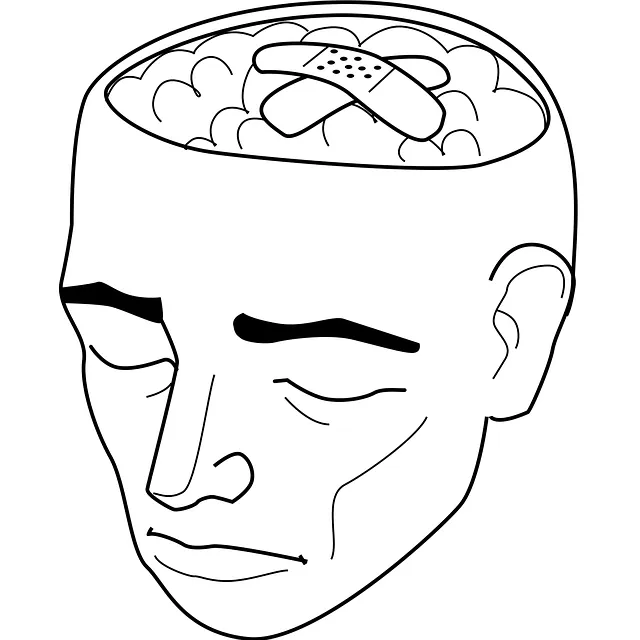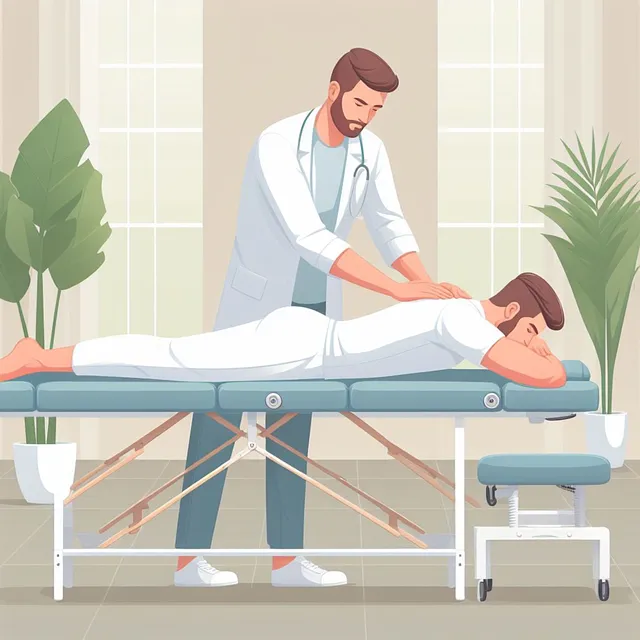Trauma can disrupt emotional well-being, but Kaiser Trauma Therapy offers a holistic path to healing through traditional talk therapy combined with energy healing techniques that address mind-body-spirit connections. By processing traumatic memories, releasing emotions, and restoring balance, individuals reclaim happiness. Their accessible online certification program empowers people to recover from post-traumatic stress and abuse naturally. This approach, emphasizing techniques like deep breathing exercises and Emotional Processing Therapy, helps heal childhood trauma's lasting effects on adulthood, reduces anxiety symptoms, and cultivates resilience for a joyful, purposeful life.
Reclaim your happiness by exploring the power of Kaiser Trauma Therapy, a transformative path to healing. This article delves into the profound impact of unresolved trauma, offering insights on recognizing its signs and understanding its long-lasting effects on adult well-being. Learn how childhood trauma shapes our present and discover effective techniques to process and overcome past wounds. We’ll guide you through cultivating resilience and building a meaningful future, emphasizing the transformative potential of Kaiser Trauma Therapy.
- Understanding Kaiser Trauma Therapy: A Path to Healing
- Recognizing the Signs: Identifying Unresolved Trauma
- The Impact of Childhood Trauma on Adult Happiness
- Techniques for Processing and Overcoming Past Trauma
- Cultivating Resilience: Strategies for Daily Life
- Embracing a Happy Future: Building a Meaningful Life After Trauma
Understanding Kaiser Trauma Therapy: A Path to Healing

Trauma is a profound and often complex experience that can leave lasting effects on an individual’s mental and emotional well-being. Kaiser Trauma Therapy offers a transformative approach to healing, providing tools to reclaim happiness after traumatic events. This therapy method recognizes that trauma can manifest in various ways, from flashbacks and nightmares to persistent feelings of fear or detachment from one’s own emotions.
The Kaiser approach focuses on the interconnectedness of the mind, body, and spirit, believing that true healing involves a holistic process. By combining traditional talk therapy with energy healing techniques, this method aims to help individuals process traumatic memories, release pent-up emotions, and restore a sense of balance. The certification program online offers an accessible way to learn these powerful practices, enabling people to embark on their journey towards natural recovery from post-traumatic stress and abuse.
Recognizing the Signs: Identifying Unresolved Trauma

Unresolved trauma often lurks beneath the surface of our daily lives, presenting subtle signs that can impact our overall well-being and happiness. It’s crucial to recognize these indicators, as they may be hindering your ability to experience genuine joy. One way to identify trauma is by paying attention to persistent emotional reactions or triggers. For instance, if certain situations or people evoke feelings of anxiety, fear, or flashbacks, it could suggest an underlying traumatic experience that needs addressing.
Kaiser trauma therapy emphasizes the importance of understanding and processing these unresolved issues. Techniques like deep breathing exercises can aid in calming the mind and body, making it easier to confront and release traumatic memories. Emotional Processing Therapy (EPT) variations offer structured approaches to work through these emotions, while at-home trauma release techniques provide accessible ways to begin healing. By recognizing and addressing these signs, you take a significant step towards reclaiming your happiness and embracing a more fulfilling life.
The Impact of Childhood Trauma on Adult Happiness

Childhood trauma can have profound and long-lasting effects on an individual’s ability to experience and maintain happiness in adulthood. According to research, those who have experienced traumatic events during their formative years may struggle with emotional regulation and positive affect as adults. This is because trauma often alters brain structures and functions related to mood, stress response, and memory, making it challenging for individuals to process and release the distressing memories and emotions associated with these experiences.
Kaiser trauma therapy, which incorporates techniques like kaiser breathing for panic attacks (deep breathing exercises), offers a promising approach to dealing with trauma without formal therapy. The method focuses on helping individuals develop coping mechanisms and resilience by addressing the root causes of their distress. By learning deep breathing exercises for kaiser therapy, people can regulate their stress response, reduce anxiety symptoms, and create a safe space within themselves, allowing them to process traumatic memories in a healthier manner. This proactive approach to wellness empowers individuals to reclaim their happiness by healing from past traumas and cultivating emotional well-being.
Techniques for Processing and Overcoming Past Trauma

Healing from past trauma is a crucial step towards reclaiming happiness. Techniques like Kaiser trauma therapy offer effective approaches to process and overcome these experiences. This form of therapy, often delivered by trained professionals, focuses on helping individuals confront and work through traumatic memories, thereby reducing their impact on current emotional states.
Non-traditional therapy for anxiety disorders, such as mindfulness meditation for traumatic events, is another valuable tool. Trauma-informed care training for professionals equips them to provide sensitive support, fostering an environment where individuals feel safe to share their stories. By integrating these strategies, one can navigate the path towards healing and restore a sense of well-being, ultimately reclaiming happiness.
Cultivating Resilience: Strategies for Daily Life

Cultivating resilience is a vital step towards reclaiming happiness, especially when facing the aftermath of traumatic experiences. Kaiser trauma therapy introduces effective strategies to navigate daily life and build mental fortitude. This approach focuses on non-pharmacological methods, offering a game-changer for those dealing with post-traumatic stress disorder (PTSD) in both childhood and adulthood.
One key aspect is learning to regulate emotions, which helps individuals process and manage intense feelings without being overwhelmed. Techniques such as mindfulness meditation and cognitive behavioral therapy (CBT), when practiced regularly, can foster a sense of calm and empowerment. Additionally, engaging in meaningful activities, whether it’s spending time in nature or pursuing hobbies, provides an alternative to unhealthy coping mechanisms and allows for personal growth. These strategies, often taught through kaiser therapy for childhood trauma, empower individuals to take control and create a life filled with joy and purpose, despite the challenges faced.
Embracing a Happy Future: Building a Meaningful Life After Trauma

After experiencing trauma, rebuilding a life filled with joy and purpose might seem daunting. However, it’s possible to reclaim happiness and create a meaningful future. Embracing therapeutic practices like Kaiser trauma therapy offers a roadmap for healing. This approach recognizes that each individual’s journey to recovery is unique and often requires non-traditional therapy for anxiety disorders, delving into underlying issues to foster genuine transformation.
Consider exploring trauma healing retreats near me as a supportive environment to begin this process. These retreats provide an opportunity to disconnect from daily stressors and focus on self-care. Through various activities and alternative treatments for post-traumatic stress disorder (PTSD), participants can learn coping mechanisms, develop resilience, and discover new ways to navigate life’s challenges. With dedicated time and effort, it is possible to rise above trauma’s impact and embrace a brighter, happier future.
In navigating the journey towards reclaiming happiness, understanding and addressing unresolved trauma is paramount. By embracing Kaiser Trauma Therapy techniques, recognizing signs of past wounds, and adopting resilience strategies, individuals can break free from its hold. The path to a joyful future involves processing traumatic memories and cultivating meaningful experiences that foster emotional well-being. Through this transformative process, one can heal, grow, and embrace a vibrant life unburdened by the remnants of trauma.






